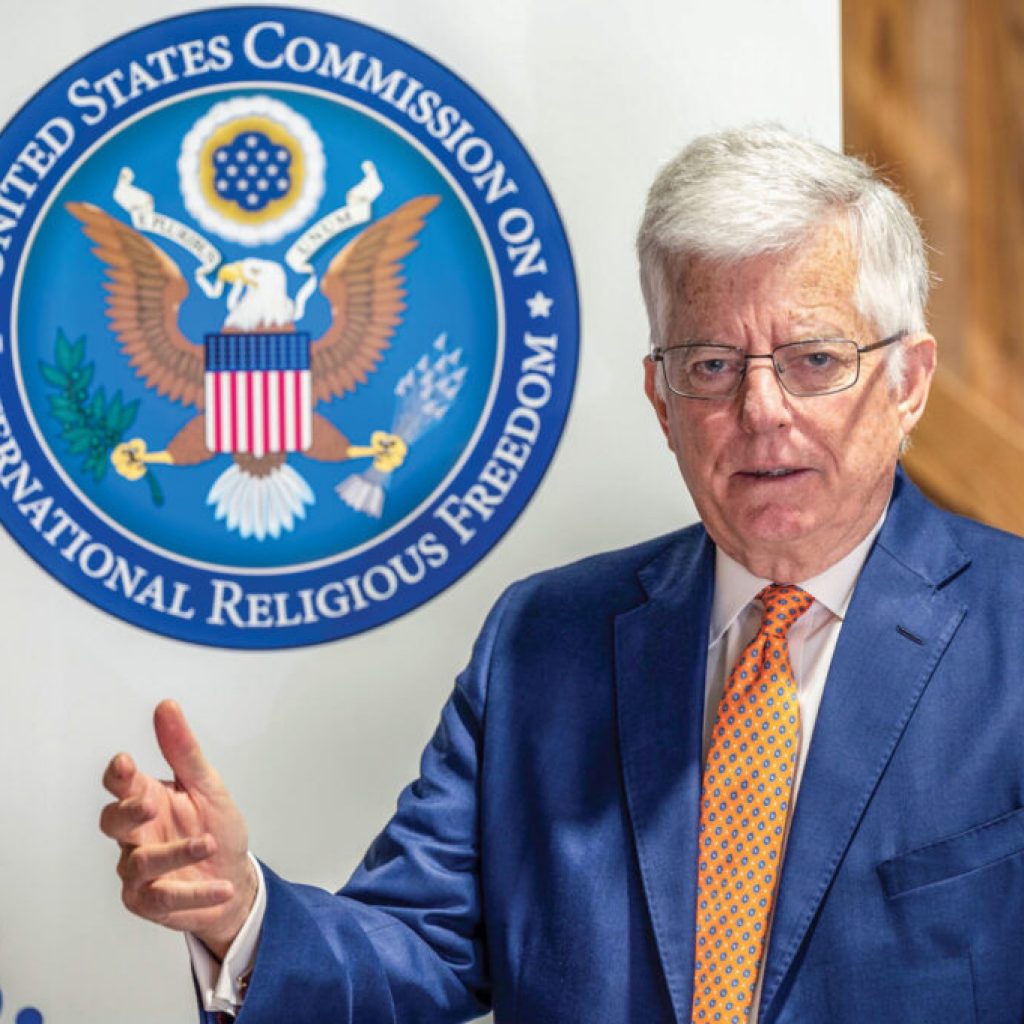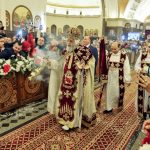By: USCIRF Commissioner James W. Carr and Congressman French Hill –
In July 2018, Abdo Adel, a Christian resident of the village of Minbal in Egypt’s Minya governorate—described by his friends as a “simple man” who loved baking qurban (sacramental bread) for the local Coptic Orthodox church—posted on Facebook a vague comparison of Jesus Christ and the Prophet Muhammad. Word of this comparison spread among Minbal’s Muslim residents, who filed a complaint with local police that Abdo had insulted Islam. Religious zealots in the community whipped up a mob that attacked Coptic properties, forcing Abdo and his family to flee and a local priest to issue a desperate apology for the social media post in hopes of quelling the violence.

After regional security forces restored order, a “customary reconciliation council” absolved the mob participants of responsibility for their bigoted rampage, while Abdo was arrested and then convicted in December 2018 for “contempt of religion.” He remains in a New Valley prison, separated from his family by hundreds of miles. Prison officials have refused his release—scheduled to occur more than a year ago—due to security forces’ claim that his return to Minbal would lead to more violence.
Abdo Adel’s story epitomizes the ongoing challenges that Coptic Christians continue to face in Egypt. He is a victim of Egypt’s blasphemy law, Article 98(f) of the Penal Code, which broadly criminalizes “insulting heavenly religions” but is used almost exclusively against those whom the authorities perceive as showing anything less than complete deference to the officially sanctioned interpretation of Sunni Islam. He and his community are also victims of sectarian violence—one of many anti-Christian mob attacks that have occurred in Minya and elsewhere in Upper Egypt—as well as of a willful failure on the part of Egypt’s system of justice to punish or deter such violence.
Finally, Abdo is also the victim of an opaque and dehumanizing prison system, along with hundreds of prisoners caught up in Egypt’s crackdown on human rights and religious freedom advocates. They include Ramy Kamel, a Coptic activist and researcher who has languished in pre-trial detention for ludicrous terrorism charges since November 2019, and Patrick George Zaki, a graduate student and researcher for the Egyptian Initiative for Personal Rights who has been held in similar pre-trial conditions since February of last year.
These issues make Egypt especially confounding, as this key U.S. ally in the Middle East has in recent years made symbolic overtures as well as some practical strides toward improving religious freedom conditions. Coptic Christians can now apply to register their previously informal churches; the Grand Imam of al-Azhar, Egypt’s most senior Muslim authority, has delegitimized legal concepts once used to relegate non-Muslims to second-class status; and the Ministry of Education is slowly introducing greater religious inclusivity, tolerance, and citizenship to public school curriculum. Of course, we welcome these steps, but these measures are overshadowed by ongoing discrimination against Copts, broader human rights concerns, and a sense of resignation among Christians that “this is the best we’re ever going to get.”
These circumstances are not the best that the people of Egypt should have to expect. We call on the Biden administration, particularly in light of its foreign policy emphasis on human rights under Secretary of State Antony Blinken, to make it clear to our Egyptian counterparts that they must take decisive actions to match the country’s positive shift in religious freedom discourse.
These steps should include launching judicial and security reforms that end the culture of impunity for sectarian mob violence; more quickly processing church registration approvals under the 2016 Church Building Law while revisiting efforts to create a unified law to equally apply to all Muslim and non-Muslim houses of worship; and releasing all prisoners caught up in blasphemy-related prosecutions or targeted for peaceful human rights activism. We also encourage members of Congress from both parties to raise the religious freedom considerations laid out in H. Res. 117 – “Supporting Coptic Christians in Egypt,” which highlights the Copts’ persistent religious freedom challenges and calls on the Egyptian government to more directly address them.
This legislation has been introduced once more in the 117th Congress. Previously, this bill had the support of various advocacy groups and broad bipartisan support from the House Foreign Affairs Committee, who has jurisdiction over proposals of this type. The U.S. Commission on International Religious Freedom understands that the United States should lead the way in protecting those of faith and should urge other nations to take this stance as well.
Indeed, any country that seeks to project strength, stability, and confidence cannot tolerate or perpetuate such longstanding problems. Egypt must instead embrace true, systematic reforms that directly confronts these issues—especially in rural parts of the country where change may incur risk and cost but whose people are crying out for change. Such measures may yet restore Abdo Adel’s life interrupted and, if fully embraced and implemented, they may yet make cases of injustice like his a fading memory.
French Hill is a Member of the U.S. House of Representatives from Arkansas, and James W. Carr is a Commissioner with the U.S. Commission on International Religious Freedom and former Harding University professor who resides in Searcy, Arkansas.
___________________________________________________
https://hill.house.gov/news/documentsingle.aspx?DocumentID=8426





